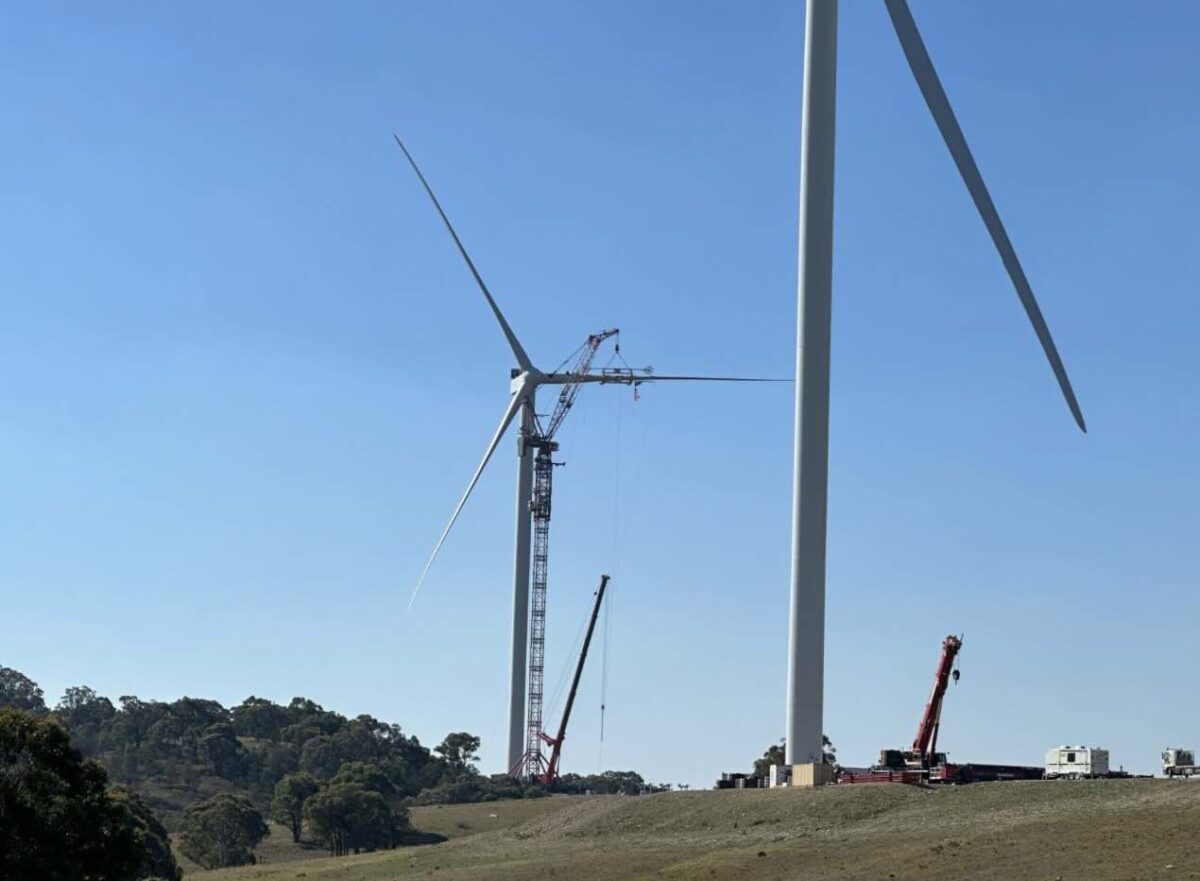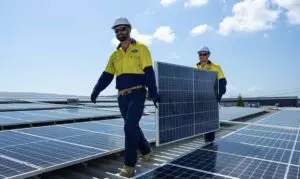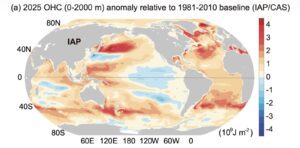The federal Labor government says its first major tender has been swamped with more than 40 gigawatts (GW) of bids from wind and solar project developers, enough to meet its 82 per cent renewable energy target.
The number was released on Monday by federal energy and climate minister Chris Bowen in an opinion piece published in the AFR, attacking the Coalition’s push for nuclear power and its opposition to renewables.
“The first auction of the Capacity Investment Scheme, which will support 6GW of new power, has received more than 40GW of project registrations, showing there is a strong pipeline of renewables ready to go with the right policy settings,” Bowen wrote.
His office said that no further details will be released. Registrations for the first tender under the CIS were due on June 19. The first formal bids are due July 1.
The CIS is designed to secure 32 GW of generation and storage capacity, with 23 GW of that reserved for large scale wind and solar projects, and 9 GW (with an average four hours storage) for dispatchable capacity. This is expected to be made up almost entirely by battery storage projects, as the deadlines are too short for pumped hydro.
Bowen’s revelation of the interest in the CIS is not surprising, given the sheer scale of the number and size of the projects in the development pipeline in Australia, and because the CIS has become by far the biggest game in town for projects seeking contracts or underwriting agreements.
Bowen says it shows that Labor can deliver on its renewable energy target, which seeks an 82 per cent share of renewables across Australia by 2030.
“What drives the Liberal Party’s push towards nuclear energy is not a concern that Australia’s renewable energy transformation is happening too slowly,” Bowen wrote.
“The opposite is true. The Liberal and National parties are concerned that our energy policies are too effective for their comfort, given their ideological opposition to renewables.”
Bowen also said that, contrary to the Coalition rhetoric, renewables were bringing wholesale prices down.
“When Labor came into office, wholesale prices were $375 a megawatt/hour. Over the first quarter of this year, they were $76 a megawatt/hour,” he wrote.
“Australians know that renewables drive down prices. We have the highest uptake of rooftop solar in the world for a reason, and that shows no signs of stopping. We saw more than 330,000 rooftop solar installations last year alone.”
The head of the Nationals, David Littleproud, has vowed to “tear up” contracts written by the Commonwealth through the CIS should the Coalition come to power in the next election that is due within 12 months.
It has instead announced a vague plan to build seven nuclear reactors across five states, keep coal fired power stations open, and fill the gap with gas – a plan critics say send wholesale power prices soaring, lead to increased risk of blackouts, cause a huge increase in emissions, and kill the prospects of an emerging green manufacturing industry.
“It’s hard to think of a bigger potential act of economic self-harm,” Bowen wrote.
“Stopping the rollout of renewables will have one impact: it will keep coal-fired power in our grid for longer. Much longer. Of course, this is bad news for emissions.
“But it’s also bad news for reliability as we can’t be relying on ageing coal-fired power stations and kid ourselves they will become more reliable as they age. And it’s bad news for your wallet because coal-fired power is more expensive than renewables.
“And then, even by their highly optimistic time frames, when the first nuclear power plant, with a yet to be known number of reactors onsite, comes online Australians can expect to be paying twice – once for the build and then for the higher bills of having the most expensive form of energy. In their rush to stop renewables they’ve abandoned cheaper power bills for Australians.
“The only possible explanation for this economic irrationality is a culture war on and ideological prejudice against renewable energy.”







